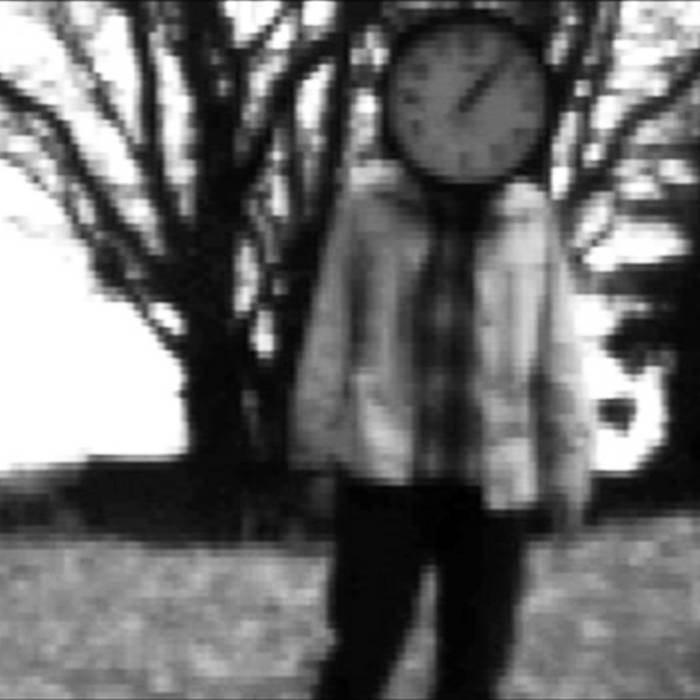“Good Omens” by Mudhouse [a review]
October 17, 2023
When Bob Dylan heard Jimi Hendrix’s version of “All Along the Watchtower”, Wikipedia, that most trusted of sources, describes his reaction as such: “It overwhelmed me, really…he could find things inside a song and vigorously develop them. He found things that other people wouldn’t think of finding in there”, and that, when Hendrix died, Dylan would only play the Hendrix version thereafter.
Now, I am not Bob Dylan, nor will I ever be, and I will stand on my coffee table and say that. But as someone who has written a folk song (or a folk-gospel song) and had it sonically, emotionally, spiritually reinterpreted, I think I can grasp, if just a little, the revelation that our man Mr. Zimmerman experienced.
I’m thinking of a song that I wrote many years ago called “Sinking Ship”, which sits at the start of Mudhouse Music’s new full length, “Good Omens”. Michael Giacomoni and his shipmates (Tyler Keneep on drums, Alyssa Brandon on bass, Lauren DuBois on vocals and keys, Mitch Cavanaugh on electric guitar, Matt Varney on electric guitar) start the song just as mournful, just as aware of the inevitable crash before them, that I did many years beforehand; but when the waves start rising, when the sea starts roiling, the band reacts in kind, taking the song to new ethereal heights. The ensuing album charts these same waters. Booming vocals, broken whispers, pounding harmonies, silent prayers, grandiose laments. Ebbing, flowing.
The band hails from Lancaster, Ohio, and have played or are playing in local worship bands. Their history of playing and writing worship music informs the stirring musical push and pull that the band excels at—the propulsive rising toward crescendo, toward salvation, toward something, anything that can make sense of this feeling of brokenness inside. The songs here are a reach toward the mysterious, a belief—even if that belief is threadbare—that rescue is inevitable.
You can find the album on most streaming platforms, or support them directly thorough their bandcamp page here.
“Volume 2” by The Blue Winter [a review]
October 13, 2022

It only took until the end of song one that I began singing along to the Blue Winter’s second full length project, appropriately titled, Volume 2. Throughout the ten tracks, Aaron Troyer and Ben Roth build infectiously melodic rock anthems with splashes of pop and country that make it nearly impossible to sit still, to sit silent. The momentum, the joy, the enthusiasm is infectious, even when the songs slow down to an introspective amble. “I don’t know what you want from me,” begins the album, with a little fingerpicking in the background. A few moments more and the drums snap in, and the two performers—Roth taking up percussion duties and Troyer handling many of the instruments—are off to the races. It is the sound of two friends asking existential questions, pushing themselves musically, and having a lot of fun doing it. As the album progresses, the details become more specific: a 99 Toyota, a father/child heart to heart- stories that mine the small town terrain akin to country fringe artists like Jason Isbell and Chris Stapleton. The melodies, the lyrics, the playfulness— it all cooks. These songs could stand toe to toe with the best of them.
“Shame Chamber” by Shame Chamber [a review]
September 30, 2021

A lonely, isolated closet. Cables and wires. The pulse of a drum machine. “I’ve wanted to make heavy, loud music for a long time…” says John King. The artist, like many artists, adapting to a new way of doing things; forced by the shutdown to improvise alone. His frame hung over an electric guitar, his long hair casting shadows on the strings. DIIV on one shoulder. Chastity on the other. Kurt Vile is in there somewhere as well. “I didn’t have a concept…” he continues. “…just sort of a gut feeling”. It’s been a long, strange musical journey for King, taking him from Canton, Ohio to Mexico to the backwater town of Killbuck to a solitary bedroom closet where his newest project was born. “I just murmured weird sounds into the microphone for hours on loop”. He made an EP of music, one layer at a time, rocking out against the impeding chaos of a pandemic. “Dealing with the brink of desperation,” is how King puts it. The murmurs, the improvisation, the songs slowly took shape, while never sacrificing their looseness. They move about, like sounds bottled in a lava lamp, fluid, wild and beautiful, straight from the bedroom closet. His own private Shame Chamber.
You can stream and purchase the EP here.
“107” by Matt Kurtz [a review]
October 26, 2020

On a lonely patch of ground somewhere on the Kent campus lies the barely marked remains of Robert Smithson’s Partially Buried Woodshed. Smithson’s piece on entropy has seen its share of natural and unnatural processes since its inception in 1970, just weeks before the infamous shootings—fires, graffiti, time itself. It is at this quiet mound of grass, under a grove of trees, that artist Matt Kurtz would return, over and over again, to reflect, to draw inspiration, to meditate on his own entropic life. Just a few weeks ago, Kurtz released his first album of songs, simply titled 107, seemingly after the four short transitionary breaks of sound that segment the album. The songs themselves—apocalyptic and beautiful—drift like tumbleweeds across plains of steel guitar, electric guitar solos, banjo strums and the artist’s own fragile voice, pleading to God, grappling with love, grappling with doubt, seeking to make sense of a planet rapidly eroding. And in those one minute and seven second breaks, we hear the wisdom of children, the chirping of birds, a choir singing, a heart beating. In those one minute and seven second breaks, we hear something close to an answer.
Listen, download, purchase here.
“Hallowell” by Hallowell [a review]
March 21, 2019

When the first Bifrost Arts record came out (Come O’ Spirit), one of its contributors, Joseph Pensak, released a B-side to the record called “Come Unto Me You Weary”. As with the other Bifrost tunes, the simple hymn stood in vivid contrast to much of the “worship” music of its day. It had a quiet melody, an unpredictable arrangement, and vocal performances that ache.
Some 10 years later, Pensak has enlisted a number of Vermont (and beyond) musicians, to help him expand on those initial Bifrost outpourings on his new record, Hallowell. He draws inspiration both far and wide, from Mr. Roger’s Neighborhood, to ancient hymns, to REM and the Breeders. These eccentricities fit well with the output of Great Comfort Records, founded by Lenny Smith and family (Danielson). The Smiths have been recording and releasing gospel music that doesn’t fit the rigid framework of conventional worship music, looking instead to songs that emphasize melody and poetry over structure. Hallowell fits nicely in this unique catalogue, as Pensak and his friends grapple with faith, with the unknown, with the weight of glory across 10 beautiful tunes.
Hallowell will be released on March 22. You can purchase the album here and here.
